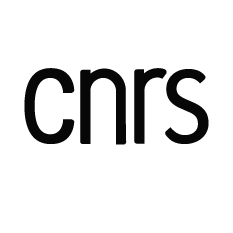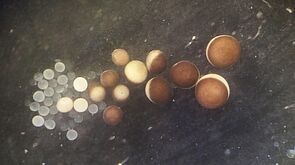Regulation of early development
[The objectives of the team are to better understand the interactions between signaling triggered by membrane receptors (MAPK, Cdk1) and intracellular (O-GlcNAcylation) and extracellular (sialylation) glycosylations during the control of cell division and embryonic development.
Our research projects are divided into two main axes:
Meiotic and mitotic progression factors, signaling and O-GlcNAcylation.
The G2/M transition and metaphase 2 arrest during meiotic resumption are studied in Xenopus laevis oocytes. This oocyte maturation requires the intervention of progression factors, regulated by phosphorylations, such as MPF (M-Phase Promoting Factor) and its regulators (Myt1, Cdc25, MAPK/Erk and PKA), as well as a global increase of O-GlcNAcylation (coll T. Lefebvre, UGSF). The interactions between these two types of post-translational regulations, as well as their robustness and deregulation, are studied by the induction of toxic stress, in particular by pollutants found in the environment (metals, phytosanitary and pharmaceutical products). In the context of the development of new potential agents for cancer chemotherapy, the arrest of the mitotic cell cycle following DNA damage is also studied in parallel with strategies relating to the triggering of the DDR (DNA damage response).
Sialyltransferases and signaling during ovogenesis and embryogenesis.
The sialyltransferases, ST6Gal, ST3Gal, ST6GalNAc, and ST8Sia, are indirectly able to modify intracellular signaling (PKA, MAPK-Erk and MAPK-p38, Src kinases) which in turn modulate their activities. The expression profile of the different sialyltransferases varies during early development without their respective roles being fully defined. In order to better understand their functions and regulatory mechanisms during oogenesis and embryogenesis in Xenopus laevis, detection and localization under physiological conditions and/or after signaling perturbations are essential. Other phyla can also be considered (coll. A. Harduin-Lepers, UGSF) in order to better define the specificities of these enzymes in aquaculture species.
Members
Jean-François Bodart, Professeur des Universités; Katia Cailliau-Maggio, Maître de Conférences Universitaires, HDR ; Matthieu Marin, Maître de Conférences Universitaires ; Alain Martoriati, Maître de Conférences Universitaires ;Ingrid Fliniaux, Maître de Conférences Universitaire; Arlette Lescuyer, Assistante Ingénieure Universitaire.



